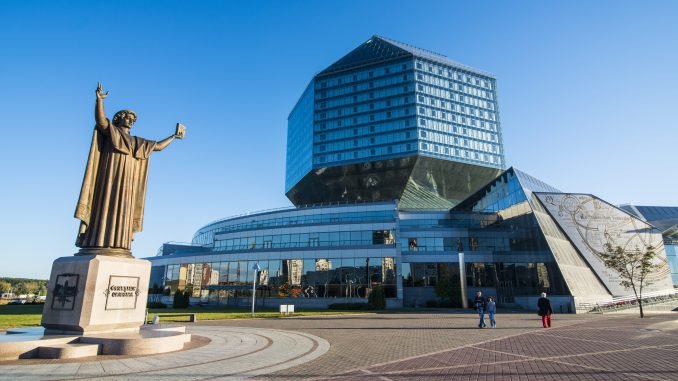
It has maintained a strong relationship with Russia, especially in military and security matters. Certain Soviet institutions, such as the KGB, endure in the country, and the economy is still largely state-controlled. But change is inevitable even in Belarus. Spurred by the EU vote on Feb. 15 to remove most of the sanctions on Belarus that have been in place since 2010, the country is undertaking a transformation that will affect its foreign policy as much as its economy.
Since the sanctions were lifted, diplomatic activity between Belarus and Western countries has picked up noticeably. An EU delegation of economic officials visited Minsk on Feb. 24 and discussed increasing financial and economic cooperation with Belarus. For Minsk, this is a welcome development because Belarus is in the middle of an economic slowdown. If not assuaged, the economic turmoil could compound public frustration with Lukashenko’s government over perceived human rights abuses in the country. Consequently, Lukashenko later met with EU Special Representative for Human Rights Stavros Lambrinidis on March 9 and expressed his desire to increase ties with the European Union.
Specifically, Lukashenko linked progress in Belarus’ economic relations with the European Union to the country’s political shift on human rights issues. On March 1, the Belarusian interior minister announced that security forces will no longer detain protesters at the scene of demonstrations. Instead, police will draw up charges against offenders. Those charged must then appear in court and pay a fine, but they will no longer have to serve jail time. Clearly, Belarusian authorities recognize the need for a change in their handling of domestic discontent. And this change appears to be driving even greater Western interest in Belarus.
Why Change Now?
The current revisions to Belarusian policy can be traced back to the 2014 Euromaidan uprising in Ukraine, when President Viktor Yanukovich was forced out of power after three months of demonstrations. Yanukovich, like Lukashenko, had aligned his country’s foreign policy with Russia’s, spurning the European Union and its Eastern Partnership program. Also like Lukashenko, who has frequently dispatched security forces to quell any dissent against his rule, Yanukovich often responded harshly to protests. But in 2013, a crackdown on protests precipitated larger, more violent demonstrations across Ukraine, which, in turn, eventually led to the president’s ouster and replacement with a pro-West government.
Fearing that the West would support a similar uprising in Belarus if the country adhered to its same oppressive policies, Lukashenko immediately offered Minsk as a mediator between Russia and the West over the Ukraine crisis. The resulting Minsk peace talks established important security protocols in the conflict. Lukashenko then seized the opportunity to slowly increase economic and political ties with the United States and the European Union, all the while maintaining a strategic alignment with Russia.
At the same time, Belarus began allowing protesters to hold more unsanctioned demonstrations, such as those against the opening of a Russian air base on Belarusian territory. The demonstrations tended to be small, with participants typically numbering in the hundreds or low thousands at most. Still, the move indicated — specifically to the United States and European Union — a new, more lenient attitude toward protests in Belarus.
Minsk also intentionally eased its punishment for protests during the presidential election in October 2015. After all, only after Lukashenko suppressed demonstrations against his victory in the 2010 presidential election did the United States and the European Union impose sanctions on Belarusian officials and companies. No such crackdown took place in 2015, although the vote was not considered completely free and fair. Lukashenko also released several prominent political prisoners who had been detained in prior demonstrations. These acts directly led to the sanctions’ permanent removal.
The Russian Response
But Belarus’ warming ties with the West trouble Russia. Since the Euromaidan uprising, Moscow has become more than sensitive to Western activity in former Soviet countries, particularly loyal ones such as Belarus. Minsk has yet to strengthen military ties with the West, however, opting instead to remain aligned with Russia on security matters. In fact, Belarus has spoken out against U.S. and NATO plans to build up forces in Eastern Europe. And though Minsk has so far resisted opening a Russian air base on its territory, if Belarus feels threatened by Western activity, it could amend its policies accordingly.
Belarus will continue to build its relationship with the West to counter economic slowdown and pre-empt any Western designs to undermine the Lukashenko government. Minsk’s efforts are bound to complicate its relationship with Moscow, creating even greater challenges for Lukashenko. Nonetheless, Belarus’ transformation will progress, however gradually.
—-
The piece originally appeared on Stratfor

Be the first to comment